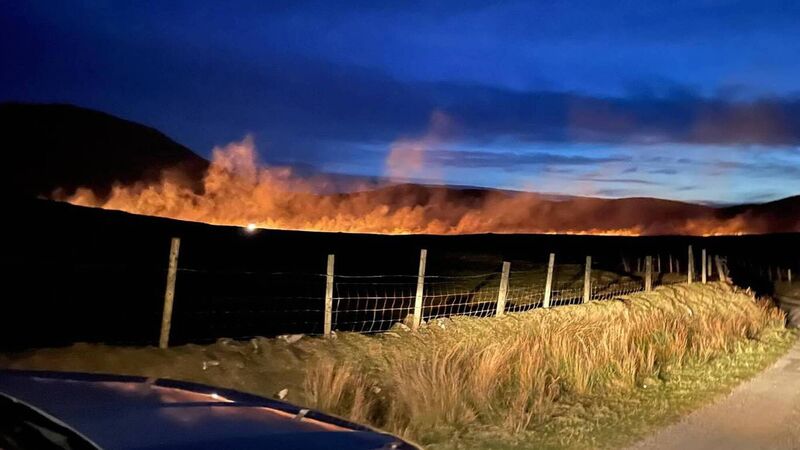Senator calls for Defence Forces to tackle wildfires

The wildfire at Glenkeen, near Louisbugh. Picture: Glenkeen Farm
Deploy the Defence Forces and their equipment to tackle the growing number of devastating forest and gorse fires, the Government was urged in the Senate.
It followed a recent spate of fires countrywide and the issuing of numerous orange alerts to the public by the Department of Agriculture, Food and the Marine.











